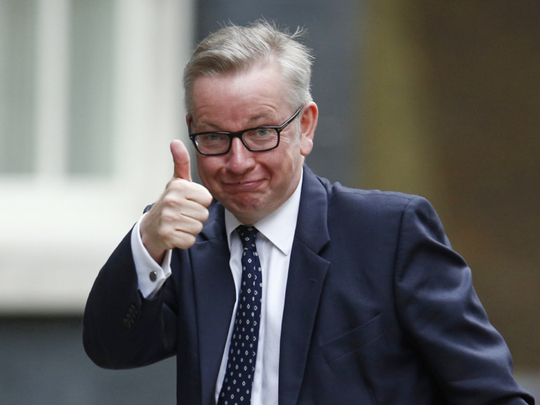
Liam Fox, United Kingdom’s Secretary of State for International Trade, has announced that Britain is “embracing the brave new world of free trade”. United States President Donald Trump has put Britain somewhere vaguely near the front of the queue for a British-American trade deal — if his comments to Michael Gove are to be believed. MPs brag about how much easier it will be for us to finalise British trade deals than when we have to deal with those dysfunctional Europeans. It seems like the UK has a bright trading future ahead. But even if all of this comes to pass, and it’s a massive “if”, UK should hold back on the celebrations because these new trade deals could make the toxic transatlantic Trade and Investment Partnership look positively progressive by comparison. If you thought the European Union (EU) was undemocratic, you’ll be truly shocked by the lack of power Westminster has to scrutinise trade deals.
Last week, I took part in a one-hour briefing of the British parliament’s international trade committee about the controversial EU-Canada Comprehensive Economic and Trade Agreement, which could partially come into force in Britain in the next few months. This deal will affect Britain’s public services, its ability to fight climate change and how our laws are made. The British government has given fulsome support, but my one-hour session was the only time MPs have ever discussed it. In all likelihood, it will come into effect without a single debate in parliament. Even when parliament does discuss trade deals, MPs have no power to amend them. All they can do, if they’re lucky, is say ‘yes’ or ‘no’ at the end. Most get waved through. Given this gaping democratic deficit, trade deals could well be swiftly concluded, but what on earth will they contain?
Trump has already made it very clear that the US has been too generous to trade partners in previous deals. So what might he have in store for us?
First, the hated Investor-State Dispute Settlement, which allows foreign corporations to sue governments for passing regulations that damage corporate profits, will almost certainly be included. Even the European commission’s tame amendments to this anti-democratic system (such as, for instance, giving countries the right to appeal and holding sessions in public) are too much for the US.
In the likely event that a US-UK trade deal includes the most extreme version of this “corporate court” system, corporations will suddenly be able to sue Britain for doing almost anything they don’t like — environmental protection, regulating finance, renationalising public services, anti-smoking policies — you name it. And what would US business want out of a trade deal with Britain? Its massive private health care industry positively drools over the thought of getting its hands on the National Health Service (NHS). Any trade deal Britain did would be pushed by these health care interests trying to lock-in further liberalisation of the UK’s health service. Modern trade agreements are increasingly not about tariffs — Britain has low tariffs with the US anyway — but making sure laws and regulations don’t obstruct the free flow of capital.
The US government has always been clear that Britain’s food and farming regulations, which prevent the sort of high-intensity, high-chemical, low-animal welfare farming common in the US, are a “trade barrier”. Any deal will likely look at stripping away regulations on genetic modification, antibiotics and hormone use in farming. In turn, this will open up Britain’s small farmers to devastating competition with US agribusiness. The US is extremely hot on intellectual property rules and will push to protect the privilege of pharmaceutical copyright — at a cost to the NHS — and harsher copyright laws in general. It has been particularly interested in overturning laws that force foreign companies to keep data on local servers.
That means allowing the Silicon Valley industries to move your data to the US, where they don’t have to abide by European laws on data privacy. Trump is hardly an environmentalist and could well push for rules, already proposed in other deals, that makes discriminating between different sorts of fuels impossible.
In other words, supporting renewables technologies when fossil fuels could do the job could become the basis for a trade dispute. And while, traditionally, the US has been more progressive on financial regulation than the UK, Trump has already promised to sweep away former US president Barack Obama’s post-crash financial laws. That will be welcomed by the City of London, which will want to use a trade agreement to lock-in financial deregulation — making proposals to break up big banks or impose a financial transactions tax extremely difficult.
Finally, let’s remember that outside the EU, Britain is both less valuable to the US (and other countries) and less able to fight for its own interests. That means the UK will inevitably have to make more concessions to a particularly aggressive US government. If you were worried about the EU’s constraint of Britain’s sovereignty, you’ve seen nothing yet.
— Guardian News & Media Ltd
Nick Dearden is director of the Global Justice Now (formerly World Development Movement).









